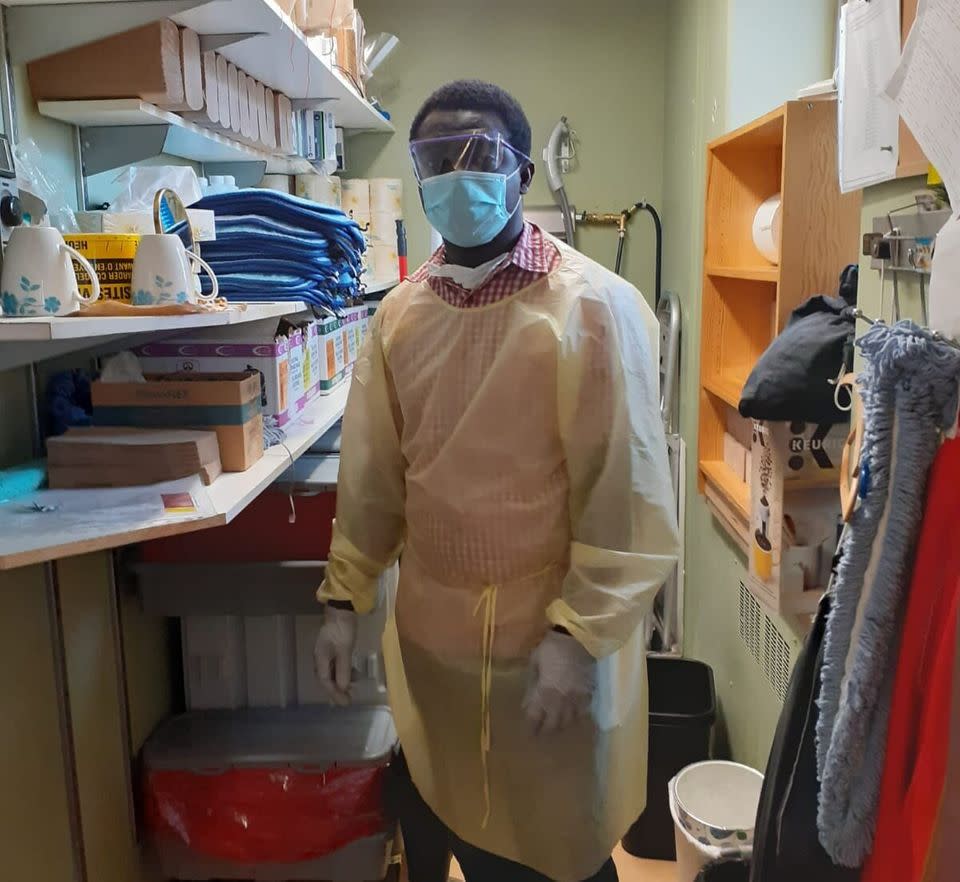He Caught COVID-19 Working In Quebec Long-Term Care. Now He’s Awaiting Deportation.

MONTREAL — When the COVID-19 pandemic hit Quebec last spring, Mamadou Konaté worked in a number of Montreal public long-term care homes (CHSLD). He was at the epicentre of the country’s pandemic.
Assigned to cleaning duties, the 39-year-old Ivorian “witnessed death for months.” He himself caught coronavirus at the end of April, at the height of the first wave. When he recovered, he went right back to the front lines.
Today, Mamadou is awaiting deportation.
His long-time friend Amelia Orellana told HuffPost Quebec his story, since Mamadou has been detained at an immigration holding centre in Laval for more than a week.
He is undocumented, meaning he doesn’t have legal status in Canada.
***
Mamadou arrived in Quebec in Feb. 2016 after fleeing the Ivory Coast, where he had been imprisoned during the military conflict that followed a 2002 failed coup.
According to court documents reviewed by HuffPost, he was “beaten, mistreated, perhaps even tortured, during his detention” at the hands of rebel group Forces nouvelles, between 2004 and 2005.
Many of those who orchestrated the rebellion now occupy influential positions in President Alassane Ouattara’s government there. Mamadou fears retaliation if he returns to the Ivory Coast.

In Quebec’s long-term care home system, where he started working through an agency at the beginning of the pandemic, undocumented migrants like Mamadou do a lot more than clean, Orellana argues.
“All the floors are covered by undocumented persons who don’t just clean. They socialize with the elderly residents. They help them when nobody else is there. They develop ties,” she describes.
“They are the front line.”
Just like thousands of other cleaners, cooks and security guards, however, Mamadou doesn’t satisfy the provincial and federal governments definition of a “guardian angel.”

When he arrived in Canada, Mamadou’s asylum claim was denied. The Immigration and Refugee Board of Canada determined that he was inadmissible...



